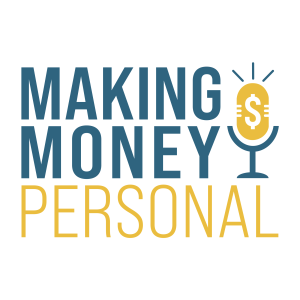Episodes

Thursday Dec 19, 2024
Episode 77: Amazing Added Benefits of Credit Union Membership
Thursday Dec 19, 2024
Thursday Dec 19, 2024
Local credit unions offer amazing benefits that can help us save money and time every day.
In this episode, we'll be discussing a few of those benefits you might not be aware of, but they could make a world of a difference in your money management strategies, your savings and your financial future.
Links:
Learn more about our Purchase Rewards program
Shop for a new car with our AutoSmart tool
Find shared branching locations and fee-free ATMs with our ATM locator
Check out TCU University for more financial education tips and resources!
Follow us on Facebook, Instagram and Twitter!
Learn more about Triangle Credit Union

Tuesday Dec 17, 2024
Fun & Budget-Friendly Holiday Activities - Money Tip Tuesday
Tuesday Dec 17, 2024
Tuesday Dec 17, 2024
The holidays are coming up very soon, and it's time to get in a festive mood! If you're on a budget but still want to get into the holiday spirit, here are some activities you can do.
Links:
Watch free movies (with ads) on Tubi & Freevee
Learn more about VolunteerMatch
Check out TCU University for more financial education tips and resources!
Follow us on Facebook, Instagram and Twitter!
Learn more about Triangle Credit Union
Transcript:
Welcome to Money Tip Tuesday from the Making Money Personal podcast.
Watching festive movies is a great way to get into the holiday spirit. Set up a movie night with friends and family and watch your favorite holiday classics or find a new favorite! Movies are a great way to celebrate the holidays on a budget, as they are relatively cheap, or even free. Streaming services like Tubi or Freevee have a large selection of holiday movies that you can watch free with ads.
Another great way to celebrate the holidays on a budget is to bake and decorate cookies. Buying all the ingredients you need at a store is relatively cheap. If you hesitate to do this because you’re not good at baking, you can also buy plain cookies and decorate them yourself. Make it an event and invite your loved ones to help decorate the baked goods with you. Similarly, you can buy gingerbread house kits to decorate and display around the house.
You can also explore other fun ways to decorate your home for the season. String up colorful lights or some garland inside and out. You can purchase affordable decorations at a budget store or make some on your own. Find templates and patterns for paper snowflakes, fabric decorations, paper chains and other types of homemade decor. If you don't have the space for a tree in your house, take some time and decorate a tree outside and if there's snow on the ground, make a snowman with a fun outfit to add to the festivities.
If you’re in need of some inspiration take some time to see how other people are decorating for the holidays. Get in your vehicle and go for a drive around neighborhoods at night. Lots of people put up holiday decorations outside for people to look at, and sometimes you can find holiday "tours" online that show which neighborhoods go all out on their decorating. If you're feeling brave, knock on some doors in your local neighborhood to sing a few holiday carols.
You can also get into the holiday spirit by volunteering. Show goodwill to others this season by helping. Visit VolunteerMatch.com for a list of organizations near you that are in need of volunteers. Look for a cause you're passionate about and start helping!
However you celebrate, there are many ways to get into a festive mood, even on a budget. Let us know how you like to celebrate the holidays, and if you have any special traditions that you love to do!
If there are any other tips or topics you'd like us to cover, let us know at tcupodcast@trianglecu.org. Also, remember to like and follow our Making Money Personal Facebook and Instagram to share your thoughts. Finally, remember to look for our sponsor, Triangle Credit Union, on Facebook and LinkedIn.
Thanks for listening to today's Money Tip Tuesday. Check out our other tips and episodes on the Making Money Personal podcast.

Tuesday Dec 10, 2024
Great Financial Gift Ideas for Any Age - Money Tip Tuesday
Tuesday Dec 10, 2024
Tuesday Dec 10, 2024
Finding the perfect gift for those on your list can sometimes be puzzling. If you’re racking your brain looking for a gift for someone, and you want that gift to be of good use and value, consider the benefits of a simple financial gift instead.
Links:
Start them early with one of our youth accounts!
Check out Triangle's Financial Planning Services
Check out TCU University for more financial education tips and resources!
Follow us on Facebook, Instagram and Twitter!
Learn more about Triangle Credit Union
Transcript:
Welcome to Money Tip Tuesday from the Making Money Personal podcast.
Finding the right gifts for our loved ones can be challenging.
For many, choosing the right gift can be difficult because you want to make sure whatever you select for the person is something they can use and like.
One great gift that most anyone can use is money. If you’re at a loss for a gift idea this year, there are some awesome financial gift ideas for many different ages that can be both useful and appreciated.
For the young ones in your life:
Don’t overlook the simplicity of giving cash or gift cards. If you want to make it fun for littles, give them a couple of fives or a bunch of ones. Maybe throw in a cute piggy bank or a new wallet for those a little older. Gift cards work great if you would rather give something a little more personal. Select some gift cards to places that provide them opportunities for fun memories that’ll last.
Fund an account like a savings account or a Flex CD. Starting a savings account helps them build savings habits, and a Flexible CD gives them the benefit of an interest-bearing account that compounds over time.
Set aside money for college with a 529 plan. Start building an account that they can use toward college and college-related expenses. The earlier they get started, the better.
Financial gifts for adults might be a little more tricky since there’s a chance that most already have established banking relationships and funding. But there are still options for the adults in your life:
You can gift them money for a celebration or special event. If they’re planning an upcoming event like a vacation, birthday party, or wedding, consider offering cash towards the special event as a holiday gift.
Consider offering money towards their financial needs – If you know your friend or family member is working to pay down student debt, medical expenses, or saving for a home downpayment, it might be a nice gesture to offer some funds towards those needs.
Consider giving investment assets as financial gifts. Stocks, bonds, or other investment assets might be good gifts for those who value building wealth. Because of regulations and rules surrounding gifts like these, research beforehand and even talk to a financial professional or accountant. But it can be an excellent idea for those interested in giving something that will grow in value over time and contribute to their net worth.
You could give the gift of a financial plan. If you know someone starting out in life or trying to organize their finances, you can offer to cover the cost to meet with a financial planning professional as a gift. Sometimes, people intend to connect with a financial planner, but because of schedule conflicts, financial constraints, or other reasons, they haven’t been able to complete the effort. Giving the gift of a financial plan to a loved one might be the first step they needed to build a bright financial future.
In summary, this time of year, considering financial gifts for friends and family could be an excellent way to provide a quality gift that will continue to pay into the future. For any advice or assistance needed in getting started with giving any of the gifts mentioned in this tip, feel free to contact the credit union staff or consult our financial planning professionals at trianglecu.org
If there are any other tips or topics, you’d like us to cover, let us know at tcupodcast@trianglecu.org. Like and follow our Making Money Personal FB and IG page and look for our sponsor, Triangle Credit Union on social media to share your thoughts.
Thanks for listening to today’s Money Tip Tuesday and be sure to check out our other tips and episodes on the Making Money Personal podcast.
Have a great day!

Tuesday Dec 03, 2024
Celebrate Generosity This Giving Tuesday - Money Tip Tuesday
Tuesday Dec 03, 2024
Tuesday Dec 03, 2024
While this time of year has us rushing around and planning for all the festivities and activities of the season, it’s also an important time to take a step back and recognize the fundamental purpose of the season in the first place – the practice of generosity.
Links:
Learn more about the mission at givingtuesday.org
Check out some tips and ideas on how to participate
Check out TCU University for more financial education tips and resources!
Follow us on Facebook, Instagram and Twitter!
Learn more about Triangle Credit Union
Transcript:
Welcome to Money Tip Tuesday from the Making Money Personal podcast.
We’ve passed through the hectic Black Friday and Cyber Monday shopping to come out on the other side to the official launch of the Christmas season.
With all the attention we give to finding deals, preparing parties, planning travel and signing Christmas cards, it’s helpful to remember that the heart of the season lies deeper than just the parties and the shopping- it's about giving.
For those who may be unaware, today is Giving Tuesday. Officially established back in 2012, it was intended to ignite a movement reminding all of us to take some time to serve others and our communities through volunteerism or financial means.
The website givingtuesday.org states boldly that the overall purpose of the movement is to “Unleash the power of radical generosity around the world.”
I don’t know about you, but that sounds like a movement I can get behind.
Since its creation, the movement has gained international traction. Every year, people and organizations unite across the globe from India, Africa, Europe, and more to recognize the importance of serving others through giving.
So the question some may have is, “what’s the best way to give?”
The good news is that there are no requirements. Participation counts in whatever way you choose to give back.
Try a random act of kindness like complimenting a stranger, carrying someone’s groceries, leaving positive notes for someone to find or pick up litter on a walk.
You can participate through financial generosity like paying for the next person in line, rounding up your purchase to donate to a charity, collecting goods for a soup kitchen or buying presents for children in need.
Volunteerism is another great way to participate like serving others at a shelter or soup kitchen, walking dogs at a shelter, or reading to kids at a local school or daycare.
If you’re interested in participating this year, check out givingtuesday.org for a list of ideas on how to join in the mission. The site also offers a variety of giving tools and other inspiring resources to ramp up the Giving Tuesday energy.
For many of us, the holidays are so busy, and rapidly speed by so when they’re finally over, we sadly realize we missed some beautiful opportunities to share in the glorious practice of generosity touching the many around us who could benefit most this season.
For those familiar with the famous Charles Dicken’s story, A Christmas Carol, here’s a relevant scene from the story about the importance of generosity.
Quick backstory: Scrooge, stunned by Jacob Marley’s ghost wrapped in chains, is baffled that a man so successful in life could be so burdened afterwards. The quote goes:
“But you were always a good man of business, Jacob,' faltered Scrooge, who now began to apply this to himself. Business!' cried the Ghost, wringing its hands again. "Mankind was my business; charity, mercy, forbearance, and benevolence, were, all, my business. The deals of my trade were but a drop of water in the comprehensive ocean of my business!”
When we reflect on the significance of this season and the true need of the many people around us, this day, Giving Tuesday, serves as reminder that our real business on earth is to give and share with those around us who are in need.
Participating in Giving Tuesday is a great way to practice generosity and share in the joy of helping others.
If there are any other tips or topics, you’d like us to cover, let us know at tcupodcast@trianglecu.org. Like and follow our Making Money Personal FB and IG page and look for our sponsor, Triangle Credit Union on social media to share your thoughts.
Thanks for listening to today’s Money Tip Tuesday and be sure to check out our other tips and episodes on the Making Money Personal podcast.
Have a great day!

Tuesday Nov 26, 2024
Black Friday Shopping Mistakes to Avoid - Money Tip Tuesday
Tuesday Nov 26, 2024
Tuesday Nov 26, 2024
Black Friday is coming soon and is the perfect time to get your shopping done for the holidays. Many deals are happening in-store and online that it's easy to get caught up in the chaos so beware because there are some common mistakes to avoid while shopping during Black Friday.
Links:
Check out TCU University for more financial education tips and resources!
Follow us on Facebook, Instagram and Twitter!
Learn more about Triangle Credit Union
Transcript:
Welcome to Money Tip Tuesday from the Making Money Personal podcast.
Before you even go into a store or visit any website online, you should devise a plan for your shopping spree. One big mistake that many people make is going shopping without a plan. They often will overspend, buy things they don't need, and miss out on some deals. When putting together a plan, start by setting a budget for yourself so you don't overspend. With all of the deals happening on Black Friday, it's common for people to spend more than they meant to. Come up with an amount or at least a range of how much you are comfortable spending.
As part of your plan, it’s also important to make a list of potential items you’d like to buy. Then, before you go shopping, look up deals for items on your list. This gives you the chance to compare deals between different retailers and figure out what works best for you.
A second common mistake people make while Black Friday shopping is thinking they’ll get the best price on anything they buy. Many stores will have a big sale based on a limited amount of one product. Then, once that limited amount is gone, they will slowly mark the price again. Some retailers will even mark up a product's price before the sale begins so that when they put it on "sale" it’s actually marked back to the original price.
A third mistake that people make during Black Friday is prioritizing quantity over quality. Just because the deal looks good doesn't mean the product is good. Buying an item just because it's cheap is not always a smart idea. Do your research on any product before you buy it to ensure you’re getting the proper value for the price you’ll pay.
A fourth mistake some make is thinking that they have to wait until Black Friday arrives to get any deals at all. Many stores offer pre-Black Friday deals that are just as good as deals offered during Black Friday events. Savvy shoppers can also get plenty of great deals after Black Friday by shopping on Cyber Monday.
It’s important to remember that some products might also be best avoided on Black Friday. That's not to say you won't get a good deal on them; it's because there are better times of the year to buy them. For example, exercise equipment, winter clothing, and holiday decorations are actually the cheapest in January. Make sure you know the best time to buy the right deals before making an impulsive decision to buy on Black Friday.
If there are any other tips or topics you'd like us to cover, let us know at tcupodcast@trianglecu.org. Also, remember to like and follow our Making Money Personal Facebook and Instagram to share your thoughts. Finally, remember to look for our sponsor, Triangle Credit Union, on Facebook and LinkedIn.
Thanks for listening to today's Money Tip Tuesday. Check out our other tips and episodes on the Making Money Personal podcast.

Thursday Nov 21, 2024
Episode 76: Holiday Budgeting Strategies to Save Money this Season
Thursday Nov 21, 2024
Thursday Nov 21, 2024
This is a favorite time of year for so many but this season does not come without financial strain and stress. Today we're going to talk about how to save money this holiday shopping season.
Links:
Try out our budgeting spreadsheet to finally get organized this season!
Watch our Budgeting for the Holidays webinar on YouTube
Check out TCU University for more financial education tips and resources!
Follow us on Facebook, Instagram and Twitter!
Learn more about Triangle Credit Union

Tuesday Nov 19, 2024
Keep Your Cards Secure When Holiday Shopping - Money Tip Tuesday
Tuesday Nov 19, 2024
Tuesday Nov 19, 2024
While the holiday season ramps up, it’s important to remember that holiday shoppers aren’t the only busy ones this year. Identity thieves and scammers take advantage of this busy season to steal information.
While you’re out there in-person or shopping online, make sure you guard your cards and card information to ensure your transactions are secure.
Links:
Learn more about secure password managers like LastPass
Learn more about Google Pay, Apple Pay, PayPal
Add your Triangle cards to a mobile wallet for secure and convenient payment
Check out TCU University for more financial education tips and resources!
Follow us on Facebook, Instagram and Twitter!
Learn more about Triangle Credit Union
Transcript:
Welcome to Money Tip Tuesday from the Making Money Personal podcast.
We all do our shopping however we feel most comfortable. Some love going out to a physical store to explore the shelves and find that perfect gift. Others like to comfortably camp out on the couch and browse websites for their holiday hunt.
Whichever way you choose to shop this year, remember to keep security top of mind.
Fraud attempts increase significantly during the shopping season so it’s important to consider whether anything insidious is hiding behind that tempting email, social media ad or website.
Scammers want your payment information. They target credit card transactions both in-person and online in hopes to steal information from as many unsuspecting shoppers as they can.
This holiday, remember to guard your payment information whenever and wherever you pay.
For those who prefer shopping online keep these security tips top of mind before you go through the checkout.
Make sure the website is secure. Look for the lock icon at the top URL address bar to ensure information being transmitted is encrypted.
Don't save your card information in browsers. Instead use a secure digital wallet or vault like LastPass.
Don’t make payments over unsecured WI-FI or mobile networks. Scammers and hackers can monitor public, unsecured Wi-Fi sources to intercept sensitive data that might be transmitted
Use an online payment company that doesn’t use card numbers like Google Pay, Apple Pay or PayPal.
For those who still shop in-person bad actors can still target your physical card transactions. Remember these tips when using your cards out in public.
When using self-pay locations like gas stations, stand-alone ATMs and parking terminals, remember to examine the pump or terminal for any signs of tampering, cameras or card skimmers.
Use the contactless payment method for physical cards instead of inserting the EMV chip or swiping the magnetic strip. Contactless methods are more secure when transmitting data
Don’t shy away from using your phone’s mobile wallet to store your cards. Mobile wallets keep all your card information secure; they transmit encrypted codes rather than card information during payment and you get the bonus of no longer needing to carry around physical cards.
If you lose your physical card, immediately lock it from any future use until you can find it or report it as lost to the credit card company
One final way to keep your cards secure is to get into the habit of monitoring all transactions. Set up transaction alerts to get instant notifications any time your card is charged so that way if suspicious activity occurs you can report it right away.
If there are any other tips or topics you'd like us to cover, let us know at tcupodcast@trianglecu.org. Like and follow our Making Money Personal FB and IG page, and look for our sponsor, Triangle Credit Union, on social media to share your thoughts.
Thanks for listening to today's Money Tip Tuesday, and be sure to check out our other tips and episodes on the Making Money Personal podcast.
Have a great day!

Tuesday Nov 12, 2024
Tips to Save on Holiday Travel - Money Tip Tuesday
Tuesday Nov 12, 2024
Tuesday Nov 12, 2024
The holidays are coming fast! There will be a lot of scheduling, planning, and prepping for the busy season's festivities, especially holiday travel.
For those of you hitting the road or flying out to celebrate the holidays or even to get away, you can do a few things to save a little money on this season’s holiday travel planning.
Links:
Learn more about Triangle's Holiday Cash personal loan promotion to get a great rate for holiday spending needs
Save money with popular travel apps like:
Expedia
Priceline
Skyscanner
Check out TCU University for more financial education tips and resources!
Follow us on Facebook, Instagram and Twitter!
Learn more about Triangle Credit Union
Transcript:
Welcome to Money Tip Tuesday from the Making Money Personal podcast.
The holidays are known for fun festivities and moments of cheer and delight, but if you remain unprepared for too long it can get stressful fast.
For those who know they'll be traveling to see friends or family, it's time to start planning that travel so you'll have one less thing to worry about during the peak season.
In this episode I’ll share a few strategies to save some money on any upcoming travel expenses.
Set a budget. Have a clear budget in mind on what you’ll be spending on holiday travel. Set up a separate budget sheet for flights, any car rentals, lodging, food and holiday activities. Use a spreadsheet, budgeting app or even old-fashioned pen and paper to lay out every expenditure. Setting a budget and planning out how much you can spend for the holiday trip will help keep your expenses within affordable means and prevent the post-holiday spending hangover that can occur once the bills start rolling in. For those worried about affording holiday travel expenses this year, check out seasonal holiday loans, like Triangle’s Holiday Cash personal loan. These loans offer a great opportunity to borrow plenty of cash to afford most holiday expenses at an affordable rate.
Book early. If you're flying, book as early as possible to ensure you get the right deals and competitive pricing. Also, be selective about which days to travel. Some days are less busy than others, which means you could score lower ticket prices. Rearranging your travel schedule to avoid heavy travel days can save you quite a bit of money. If you're looking for an easy way to help price out and compare flights, try using flight comparison and travel apps like Expedia, Priceline and Skyscanner.
If you have credit card points, now is a good time to cash them in. Regardless of how many you have, look into applying them towards as many travel costs as you can. Any opportunity to save on expenses during the holiday season is great!
Explore benefit programs and travel bonuses. Many credit card companies offer travel bonuses and perks just for being a cardholder. You may get complimentary access to airport lounges, discounts, and other travel benefits for low or no cost. Take some time to explore your credit card program benefits to see what additional perks might be available for your holiday travel.
Set aside a little extra money to prepare for the unexpected. It’s the holidays, and you’re traveling. There’s a chance that spontaneous delays and cancellations can occur. If travel issues do arise for whatever reason, make sure you have some emergency money available. A mixture of cash and credit cards are good to have on hand while traveling so you can relax knowing there’s additional money available for any unexpected needs.
If there are any other tips or topics you'd like us to cover, let us know at tcupodcast@trianglecu.org. Like and follow our Making Money Personal FB and IG page, and look for our sponsor, Triangle Credit Union, on social media to share your thoughts.
Thanks for listening to today's Money Tip Tuesday and be sure to check out our other tips and episodes on the Making Money Personal podcast.
Have a great day!

Tuesday Nov 05, 2024
Strategies to Safeguard Your Membership - Money Tip Tuesday
Tuesday Nov 05, 2024
Tuesday Nov 05, 2024
As fraud continues to increase across the country and the globe it’s no surprise that scammers fix their eyes on high-prized targets- people's bank accounts.
Financial institutions make a strong effort to keep your financial accounts safe from threats, but you’re still the last line of defense when it comes to safeguarding your membership.
Links:
Learn more about Triangle's Better Checking account with identity theft protection
Check out TCU University for more financial education tips and resources!
Follow us on Facebook, Instagram and Twitter!
Learn more about Triangle Credit Union
Welcome to Money Tip Tuesday from the Making Money Personal podcast.
We’ve seen increased fraud activity over the past year. Scammers are using advanced and convincing techniques to trick unsuspecting members into handing over their personal banking information.
One particular tactic we’ve seen is fraudsters calling or texting members, posing as employees from the TCU Fraud Department, and have replicated our 603-889-2470 phone number. Once the conversation starts, the fraudsters request confidential online banking information and passcodes.
Some who have received these alarming calls and texts inadvertently provide all the requested information.
As a result, the fraudster uses the login information to access the accounts and steal their money.
Unfortunately, these convincing threats have continued to hit unsuspecting victims and there’s no reason to think that threats like this will decrease over time.
As a member, it’s important that you stay aware of these tactics so if you ever receive one of these calls or texts, you’ll know the proper actions to take.
Keep these following key steps top of mind to safeguard your membership and personal information.
Do not provide your online banking credentials, one-time passcodes, or multi-authentication codes to anyone over the phone or text, regardless of who they claim to be.
If you receive a suspicious phone call, hang up immediately or ask the caller for a return phone number. After disconnecting the call, contact the credit union through secure email within online banking, or call the number found on the credit union’s website.
If you receive an alarming text, do not open it and delete it immediately. Triangle does not use text messaging, commonly referred to as SMS, to communicate with members.
Get identity theft protection. Even the most guarded person can become a victim through channels outside of their own control. Having identity monitoring and id protection benefits can keep you aware of anything suspicious that may happen with your identity and provide resources and assistance to deal with any resolution. Triangle offers Better Checking with Identity theft protection through ID protect that can serve as an additional layer of defense between you and the dangerous effects of ID theft.
Lastly, become familiar with the specific ways your financial institution will and will NOT communicate with you. Triangle Credit Union in particular will never request online banking passwords from members, ask you to change your username or password, or request that you log into your online banking. Triangle Credit Union will never solicit confidential information via an unexpected call, text, email, social media message, or voicemail, and we will never ask you to enter this information through a generic web link.
We hope that this tip will help remind you to keep your defenses up if you ever encounter one of these suspicious calls or texts so you can keep your money and personal information safe.
If there are any other tips or topics you would like us to cover, let us know at tcupodcast@trianglecu.org. Like and follow our Making Money Personal FB and IG page and look for our sponsor, Triangle Credit Union on social media to share your thoughts.
Thanks for listening to today’s Money Tip Tuesday and be sure to check out our other tips and episodes on the Making Money Personal podcast.
Have a great day!

Tuesday Oct 29, 2024
Debunking 7 Common Money Myths - Money Tip Tuesday
Tuesday Oct 29, 2024
Tuesday Oct 29, 2024
Money myths abound. Over time, we hear messages from various sources that influence how we view and use our money. Some messages are accurate financial truths, while others are misguided myths. For anyone looking to boost their financial game, recognizing and avoiding some common money myths is an important place to start.
Links:
Need investing help? Explore Triangle's Financial Planning Services
Check out TCU University for more financial education tips and resources!
Follow us on Facebook, Instagram and Twitter!
Learn more about Triangle Credit Union
Transcript:
Welcome to Money Tip Tuesday from the Making Money Personal podcast.
Whether it's from an internet article, online video, or social media, there's a lot of financial "advice" out there. But sometimes, even with the best intentions, messaging might still be a little off base.
There are many money myths out there, you've likely heard, that aren't necessarily true.
Here are seven common money myths you might have heard circulating the internet or even in your social circles.
The belief that money is the root of all evil. Many listening to this may already be aware, but for those who don't, the saying goes, "The LOVE of money" is the root of all evil. Being obsessed with money and pursuing it without any thought for others around you is when money can be a problem. Some use this myth to stigmatize money, saying that it's a negative thing and that we shouldn't work for it, spend it, or save it. But the truth is that money can provide us opportunities and means to take positive actions, like donating to a charity, covering a meal for a friend, buying someone a gift, and enjoying a night out.
You can't negotiate bills. Many people don't bother to dispute a bill because they feel it won't make a difference. But it can work. I've settled a medical bill for way less than the billed amount – I ended up paying a little over half the price. If you're struggling with some bills, like medical, phone, cable, and others, try calling the companies and asking if they offer any way to settle the bill for less. You may be surprised by what they say because sometimes the company would instead get at least some of the bill now than let it extend into the future.
If you're not already rich, you can't build generational wealth. With planning, consistency, and dedication, you can take the steps to build wealth to pass on after you're gone. Exploring investing options, saving money regularly, and paying attention to your finances are all positive money habits that ensure you'll have some generational wealth to leave to future generations– even if you never made a fortune.
The cheapest option is always the best way to go. When purchasing anything, price is one of the biggest factors in our decision especially when we have to choose between multiple items at different price points. For many, the obvious choice might seem to be the cheaper option. But are there instances where that's only sometimes the case? What comes up then is the question of value. The old saying, "You get what you pay for," is spot on here. Sometimes the cheaper option isn't the best value. Cheaper electronics may need replacing sooner, cheaper clothing and shoes might wear faster, and cheaper food might not provide the best nutritional value. Take the time to weigh the prices with the product's value. Some cheaper items are the way to go, while other times, it may be better to pay a little more money for a lasting, higher-quality product.
You need to have a lot of money to invest. This is a big misconception. Many people feel that they aren't able to invest because they don't have enough to start with. Today, there are plenty of ways people can get started investing with even small amounts of money. I'm talking $50 or $100 into good-quality investment choices. With any investment consideration, it's always a good idea to talk to a financial professional to explore investing options and determine how much money is adequate for your financial situation.
You don't have to think about retirement until you're older. It's not uncommon to disregard future planning for immediate needs. Many of us think more about what we're doing now as we live daily because that's where we focus our immediate attention. This can lead to the thinking, particularly of retirement, that "I'll start thinking of that as I get older" or "I'm too young to have to start worrying about retirement." That thinking couldn't be farther from the truth. One of the best ways to have a healthy retirement by the time you reach that age is to start saving as soon as possible. The years of contributions and compounding growth will build up over time, so a person putting a small amount away at the age of 23 will likely amass a significant amount more than someone contributing a lot of money at 40. It's never a bad time to start saving for retirement, and the sooner you start saving, the better.
Your 401K can act as a good emergency fund. Okay, if you have been putting aside money over time in a retirement account like a 401k, you're likely looking at a good-sized dollar amount whenever you check it. But it can happen that when one sees that healthy savings amount, they feel that they don't have to worry about having additional savings, like for emergencies, because they can withdraw money from their 401k... right? There are a few things to consider. First, it's not easy to withdraw money from your retirement account. Depending on the type of account, the use of the money, and how much you're withdrawing, fees and taxes may be associated with taking that money from the account. Second, taking money out of a retirement account lowers your retirement accumulation and overall yearly compounding, resulting in too little in your account by the time you reach retirement age. The best way to avoid this is to keep your retirement accounts off-limits and focus on building up a healthy emergency fund in a separate bank account to cover the unexpected expenses that pop up throughout life's journey.
If there are any other tips or topics you would like us to cover, let us know at tcupodcast@trianglecu.org. Like and follow our Making Money Personal FB and IG page and look for our sponsor, Triangle Credit Union on social media to share your thoughts.
Thanks for listening to today’s Money Tip Tuesday and be sure to check out our other tips and episodes on the Making Money Personal podcast.
Have a great day!

Financial Lessons & Tips
Join us for fun, relevant financial topics that provide you with resources to help you make financial decisions. The Making Money Personal Podcast talks about the impact that money has on your personal and professional life. Our podcast examines trends and topics with support from industry professionals.





